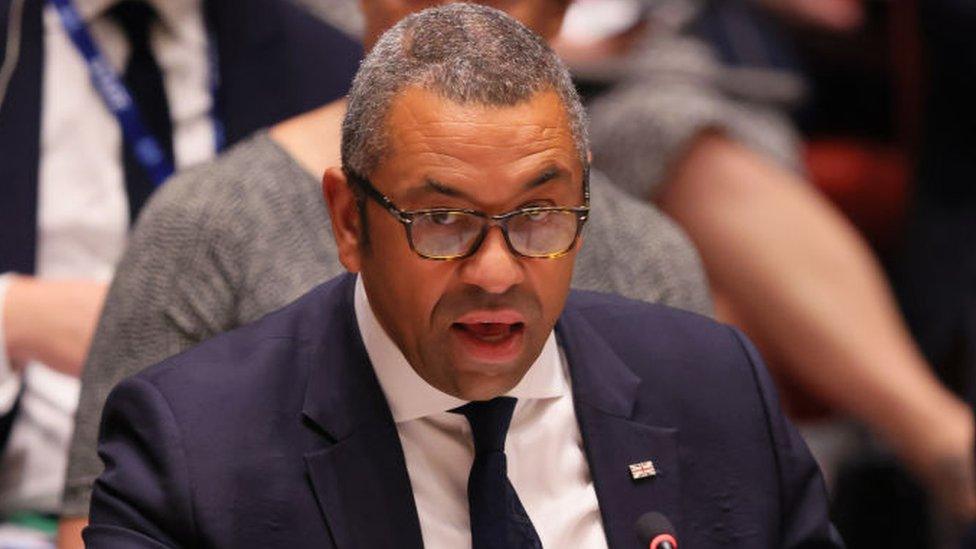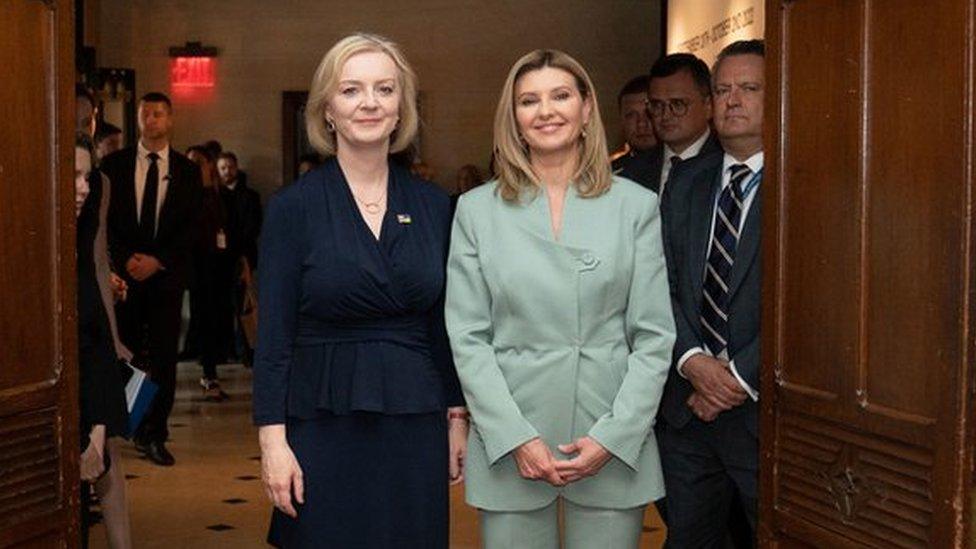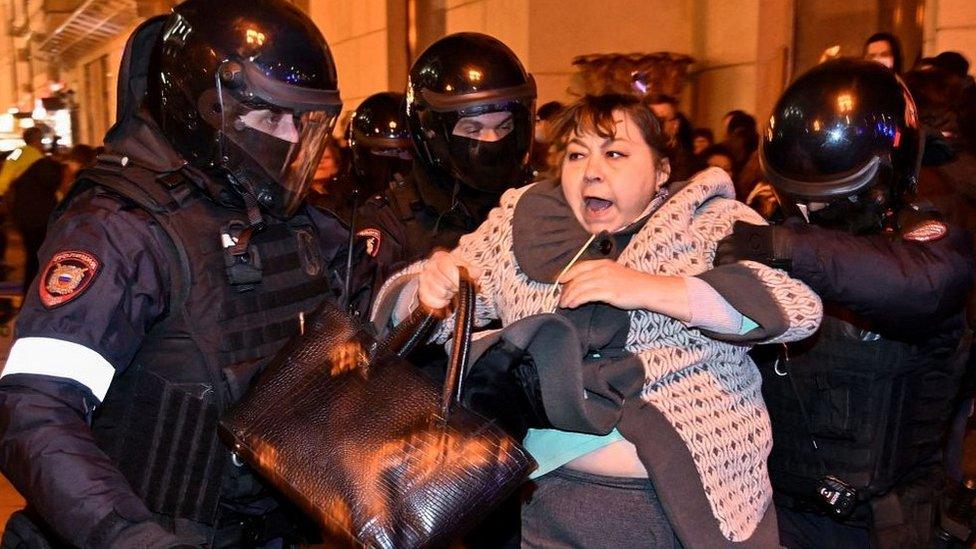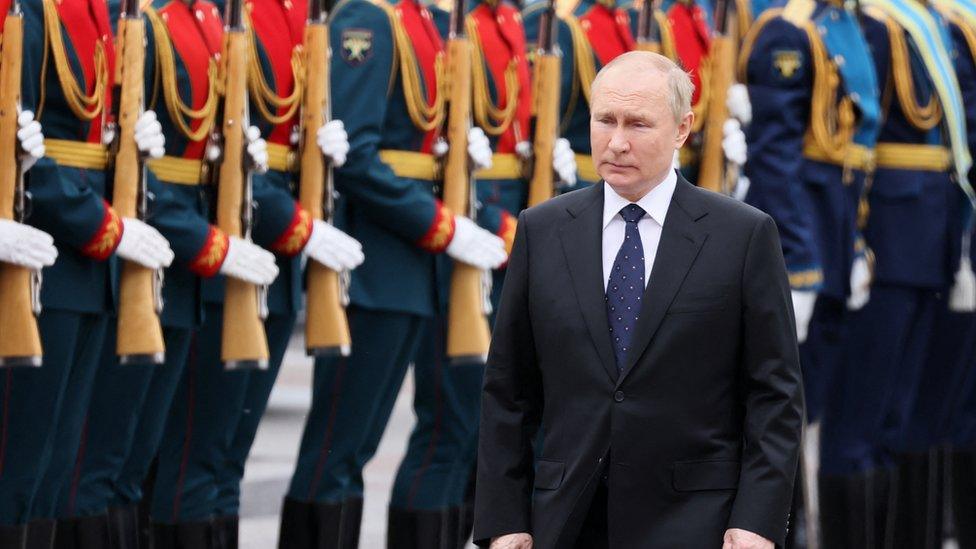Ukraine war: James Cleverly confronts Russia over atrocities at UN meeting
- Published

The foreign secretary has demanded justice for victims of war crimes in Ukraine at a meeting of world leaders.
James Cleverly said there was "mounting evidence" of Russian atrocities against civilians in Ukraine.
His speech at a UN summit in New York was immediately preceded by one from Russian Foreign Minister Sergei Lavrov.
The event has been overshadowed by Vladimir Putin's nuclear threat and call-up of military reservists in a TV address on Wednesday.
Downing Street said the Russian president's move was a "clear admission" his invasion of Ukraine was failing.
The escalation came as world leaders and senior diplomats gathered at the UN General Assembly in New York this week.
Mr Cleverly is attending as part of a UK delegation headed by Prime Minister Liz Truss, who rallied support for Ukraine in a speech to the assembly.
At a special meeting of the United Nations Security Council, Mr Cleverly accused Russian forces of committing atrocities in Ukraine and violating international law.
He called on President Putin to stop his attacks on the Ukrainian people and withdraw his forces from the country.
The foreign secretary also called on other countries to reject the "charade" of referendums Mr Putin has promised to hold in Russian-controlled regions in eastern and southern Ukraine.
"We know what Vladimir Putin is doing. He is planning to fabricate the outcome of those referenda, he is planning to use that to annex sovereign Ukrainian territory, and he is planning to use it as a further pretext to escalate his aggression," he said.
Mr Cleverly said his Russian counterpart, Mr Lavrov had left the chamber after giving his own speech.
"I'm not surprised. I don't think Mr Lavrov wants to hear the collective condemnation of this council," he added.
However, Mr Lavrov accused the West of trying to weaken Russia and drag out the conflict by pumping Ukraine full of weapons.
While Russia is outnumbered on the 15-member Security Council, it has veto, meaning it has the power to block proposed resolutions.
Related topics
- Published22 September 2022

- Published22 September 2022

- Published21 September 2022
